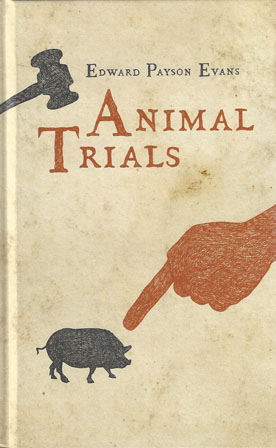We are now closed for the Christmas and New Year period, reopening on Friday 3rd January 2025. Orders placed during this time will be processed upon our return on 3rd January.

First published in 1906, Payson Evans The Criminal Prosecution and Capital Punishment of Animals was a pioneering work of great breadth chronicling cases of animal proserntions through the ages.
It captures astonishing scenes of the hanging of pigs convicted of murdering a child (sometimes dressed in human clothing first); animals deemed to have taken part in, or indeed provoked, acts of bestiality; insects that wantonly and devastatingly ravaged crops and vines and destroyed livelihoods in the process. The doubt as to the presence of souls in animals meant that they could not be excommunicated but only declared anathema and great debate raged as to the correct form of punishment for crimes committed and, to a lesser extent, the notion of guilt in animals.
Including trials in Germany, France, Switzerland, Great Britain, Scandinavia and Russia dating back as far as 824, Animal Trials provides a fascinating insight into a bygone era, addressing im¬portant social issues and religious questions, which remain just as relevanftoday such as animal rights and capital punishment. Pay¬son.Evans' wry attitude to the material only increases the peculiar nature of the work, making it a truly intriguing read.
Edward Payson Evans (1831-1917), a historian, linguist and associate of Ralph Waldo Emerson, taught at the University of Michigan before moving to Germany where he became a specialist in Oriental languages and German literature. A prolific author, his other animal-related books are Animal Symbolism in Art and Literature and Animal Symbolism in Ecclesiastical Architecture.